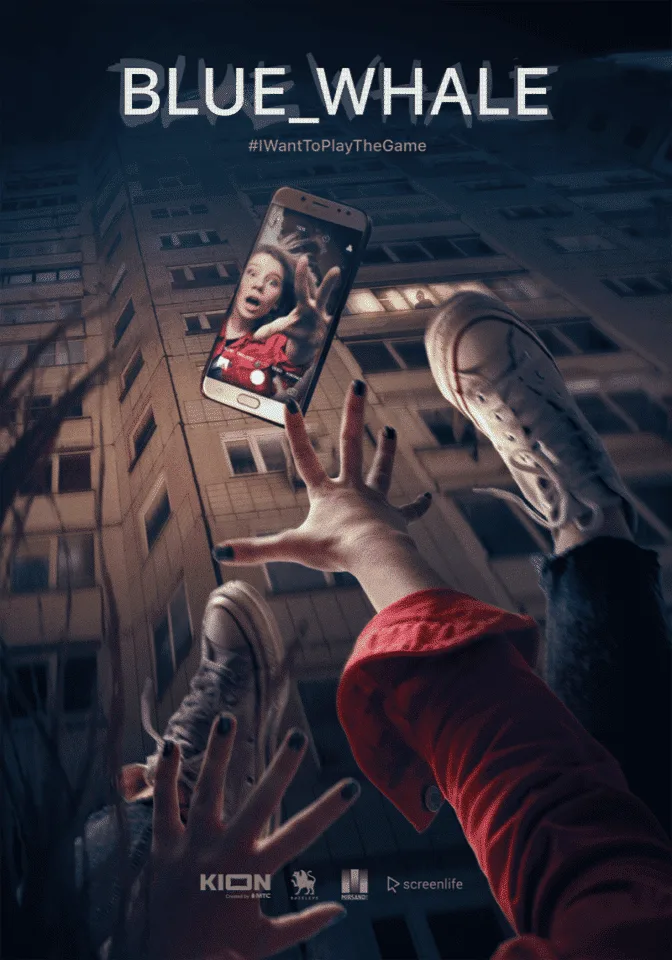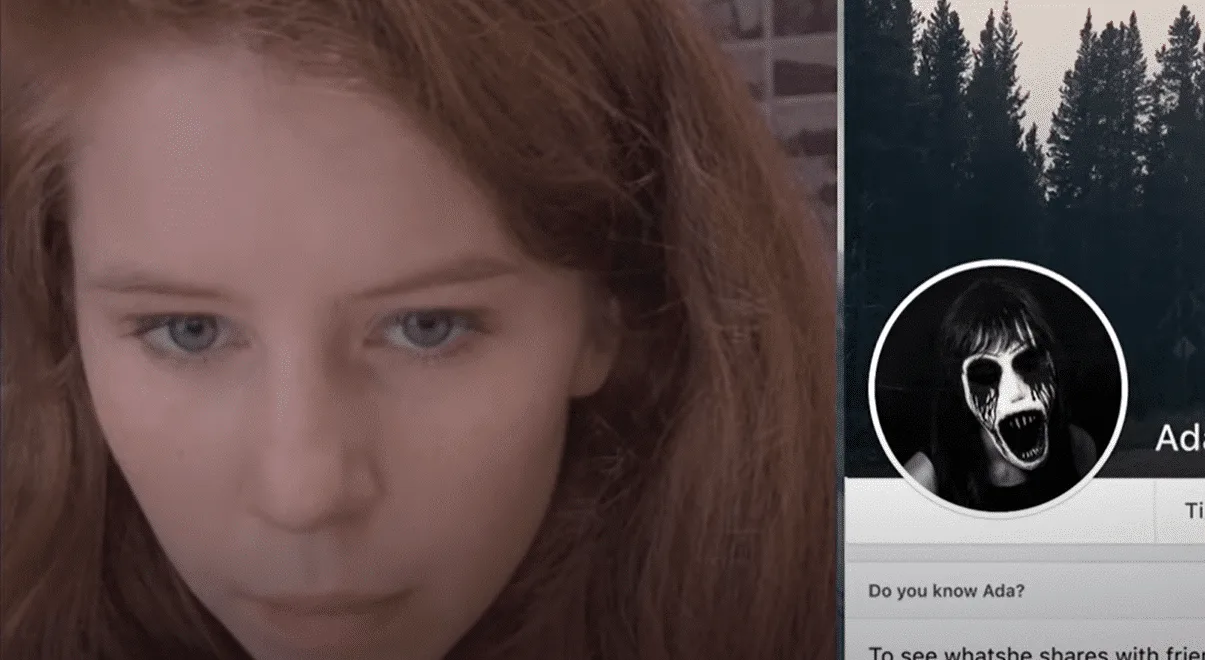
Blue Whale is a film which very much starts as it means to go on, throwing the audience into a high-paced, often frenetic online world where we quickly meet two teenage sisters – Yulya and Dana – who are fighting over a device, dropping it and breaking the screen as their long-suffering mother attempts to keep the peace. There we have it: the importance of an online presence, the need for secrecy, the pros and cons of living this way and the generation gap between these teens and everyone else, which encapsulates several of the film’s themes in a few seconds. Everything we see in the film is refracted through software – social media platforms, live videos and direct messages. But to shift things along, the time frame of the film suddenly skips forward by a few months.
Yulya is not laughing now. She begins a livecast and films herself, committing suicide by train. We whoosh through the online tributes and then we’re back to Dana (Anna Potebnya), who now wants to find out why her sister did this. Quickly she uncovers a secret, sexualised account and a run of interactions which are themselves a little threatening – but that’s not it. Dana spots a mention of some kind of online game called ‘Blue Whale’, something which has been linked to these kinds of suicides. Alongside mutual friend Vika, Dana begins to investigate, starting with a video clip of another shock teen suicide, which she finds on Yulya’s own desktop. Tracking down an online alias of someone whose avatar keeps on cropping up, Dana gets hold of a folder which contains the ‘rules’ of the Blue Whale game. This escalates a chain of events, leading Dana further into the game and its increasingly harmful tasks. Fifty tasks, fifty days…

This film is fast, fast, fast. This could be a tribute to the kinds of multi-tasking short attention spans which are prominent in the online generation, or indeed just due to the sheer weight of what this film wants to get across. The film unfolds in quick-fire succession on screens, taking its cues from the surprisingly successful early-entrant digital horror Unfriended (2014), and I gather Blue Whale comes to us from the same production company, which makes a lot of sense. This shooting style has its pros and cons wherever it is used, and Blue Whale is no exception. The realism is, for the most part, communicated successfully, and the immediacy of this format is a definite benefit, though it’s a bit of a shock to the system at first. It takes a little while to bed in because you rarely get a good look at the key protagonists when phones and webcams are dancing around, pointing here, there and everywhere. It’s a similar feeling to watching found footage, when this was done on cameras of course, this is an update of same, with the same pitfalls – though Dana does effectively develop as a character as the film progresses.
There’s also that minor issue, seen elsewhere too, where there’s no explanation within the world of the film for why all of these Russian teenagers speak in Russian, but type exclusively in English; outside the world of the film, the issue of international saleability is the clear motivation, but then it is a slight ‘dip’ in the artifice as a whole even when events in the film stretch plausibility elsewhere. Again, perhaps this is in keeping with the basis for Blue Whale, which does take its cues from a real, or rumoured online game which was linked to teenage suicides back in 2016. That swirling mix of fact, fiction and everything in-between reflects that world of rumour and hearsay which often surrounds online mythologies.
The film is equally as hectic with fairly obvious references to pre-existing horrors, from Ring (1998) to Suicide Club (2001) and any number of slasher flicks – but there is a backbone of something original here, in its rate of movement, in the way it captures a specific melee of paranoia and fear and in its sensory and overwhelming approach. Also, in how it captures the transient nature of online relationships, with friendships being made and broken based on a few typed lines, the film does an excellent job: in many ways, this vulnerability is what forms the real basis of the horror. The fantasy elements just help to define it.
Certainly, by the last act, Blue Whale is beginning to overreach, but overall, it’s an exhausting, but compelling story to follow. Even if hardened horror fans soon have their suspicions about what’s going on here, watching it all unfold in its own dizzying way is a lot of fun.
Blue Whale features as part of the Fantasia Film Festival.
